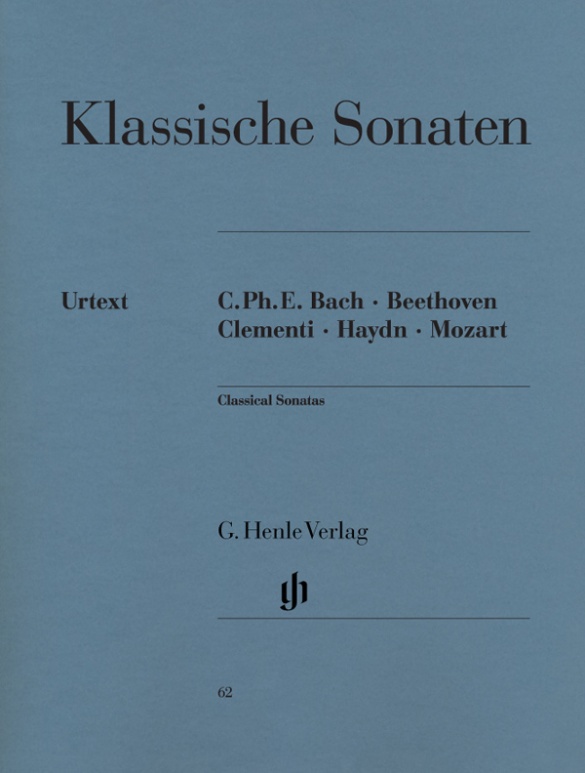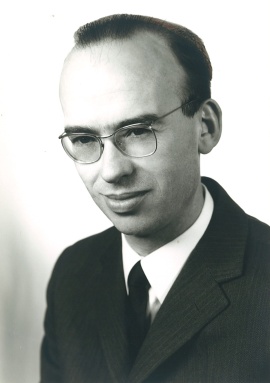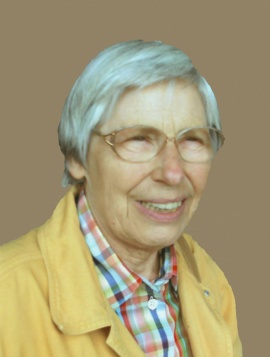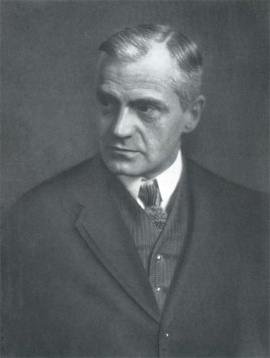

Sonates classiques pour piano
Sonates classiques pour piano
Cette sélection de sonates pour piano des périodes pré-classique et classique a été conçue afin de faciliter l’accès à l’abondant répertoire de ce genre qui est certainement le plus représenté au sein du répertoire de piano classique. Carl Philipp Emanuel Bach inaugure un parcours con-duisant ensuite à deux charmantes sonates de Haydn et trois élégantes sonates de Mozart (parmi lesquelles la célèbre «Sonate facile» en Ut majeur) puis aux sonates pour piano les plus faciles de Beethoven
CONTENU/DÉTAILS
About the Authors

Georg Feder (Editeur)
Prof. Dr. Georg Feder was born on 30.11.1927 in Bochum and died on 11.12.2006 in Cologne. He studied composition in Bochum and was the head of stage music at the theatre there from 1947 to 1949. From 1949 he read musicology, philosophy and history in Tübingen, Göttingen and Kiel. He was awarded his doctorate in 1955 with a thesis on Arrangements of Bach’s works.
From 1957 to 1992 Feder worked at the Joseph Haydn-Institut, and was Head of Research there for thirty years. One of the foremost Haydn scholars of his time and an undisputed authority in the field of music philology, he greatly shaped the work of the Institute, especially its work on the Haydn Complete Edition, making a significant contribution towards its global reputation.
54 volumes of the Complete Edition were published under his direction, eight of which he himself worked on as editor or co-editor. In addition, he edited several Urtext editions following the text in the Complete Edition for G. Henle Publishers, including Haydn’s Piano Sonatas (also an edition with selected sonatas and a study edition) as well as several volumes of string quartets (individual parts and study scores). In 1965 Feder launched the Haydn Studies as a second series published by the Joseph Haydn-Institut, publishing several important essays on the transmission of Haydn’s work in the series.

Sonja Gerlach (Editeur)
Sonja Gerlach was born in Hannover in 1936. She did a secondary school teaching degree (Staatsexamen) in music and mathematics in Berlin. From 1965 to 1999 she was a research associate and editor at the Joseph Haydn-Institut in Cologne. In addition to her work as an editor and researcher she addressed questions concerning the chronology of Haydn’s symphonies. She is also very interested in problems of ascertaining authenticity of works in Haydn’s different genres.
In 2000 she retired and moved to Munich where she now lives.

Ernst Herttrich (Editeur)
Dr. Ernst Herttrich, born in 1942 in Würzburg, read musicology, history, German and theology at the universities in Würzburg and Cologne. In 1970 he earned his doctorate in Würzburg with a study of the expression of melancholy in the music of Mozart.
From 1970 to 1990 he was an editor at G. Henle Publishers in Munich, after which he was Head of the Beethoven Complete Edition for over 15 years. In 1999 he took over as Head of the Beethoven-Haus Publishers, and from 2001 was made Head of the Beethoven-Archiv, the research centre at the Beethoven-Haus.
He has been a visiting professor at Meiji Gakuin University in Tokyo and has undertaken several lecture tours both there and to Kyoto. His research interests include source studies, editorial techniques and music history. Herttrich’s publications include “Beethoven. Liederkreis an die ferne Geliebte” (Bonn 1999) and “Ludwig van Beethoven. Biographie in Bildern” (Bonn, 2000). Herttrich has edited over 100 Urtext editions for G. Henle Publishers.

Walther Lampe (Doigtés)
Prof. Walther Lampe, born in 1872 in Leipzig, died in 1964 in Munich, studied the piano with Clara Schumann at the Hoch’schen Konservatorium in Frankfurt, as well as music theory and composition. He concluded his studies in Berlin, where he was a student of Herzogenberg and Humperdinck.
He first appeared as a concert pianist, but in 1920 was appointed as a professor and head of a class at the Münchener Akademie der Tonkunst. After Lampe was given emeritus status in 1937, he took on a piano class at the Mozarteum in Salzburg. Günter Henle, who grew up in Munich, was a private pupil of Lampe’s, from the age of 15 (in 1914). In his autobiography he wrote of his piano teacher in the following glowing terms:
“The years in which Walther Lampe, the renowned pianist and Head of piano master-classes in Munich and Salzburg, instructed me in the higher mysteries of piano playing, are amongst the most treasured memories of my youth. […] Lampe, himself an excellent concert pianist, had the reputation of being one of the leading teachers. Due to his practical experience of many decades he was able to pass on his great knowledge and skill both in words and through his own playing in a highly inspiring and supportive manner. His interpretations of Mozart were positively divine. […] I remain indebted to him for his great artistic suggestions and his friendship, which he shared with me over decades.”
During the first few years of World War II, Günter Henle looked up his old teacher and friend in Munich several times to play music with him. It was self-evident for Günter Henle to inform Walther Lampe of his plans to set up his music publishing house shortly after the end of the war, asking him for his help and advice. Lampe was very actively involved in the first editions: almost all of the Urtext editions published in the early years were supervised intensively by Lampe, a fact which is attested by the comprehensive correspondence in the archives of G. Henle Publishers. And Lampe also contributed his own fingerings to almost all of these editions. It is a very impressive list of titles, which even today still form part of G. Henle Publishers’ core repertoire.
Informations sur la sécurité du produit

G. Henle Verlag
Vous trouverez ici des informations sur le fabricant du produit.G. Henle Verlag e.K.
Forstenrieder Allee 122
81476 München
Allemagne
info@henle.de
www.henle.com

